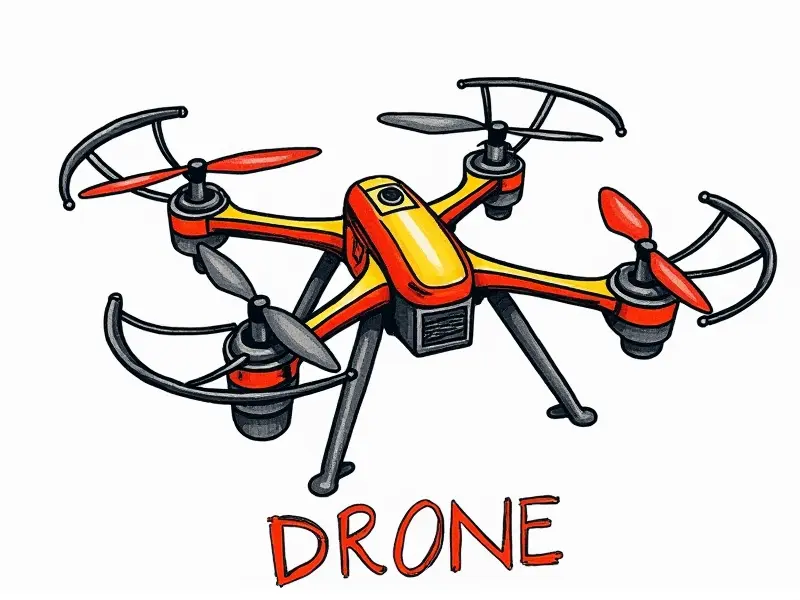How to program an RC quadcopter?

Mastering RC Quadcopter Programming Basics
Programming an RC quadcopter can be a thrilling venture for enthusiasts and hobbyists alike. It involves understanding the intricacies of flight control systems, sensors, and software to create a highly responsive and maneuverable drone. This guide will walk you through the foundational concepts necessary to get started with programming your own RC quadcopter.
Understanding Flight Control Systems
The heart of an RC quadcopter is its flight control system (FCS), which manages stability, navigation, and performance. The FCS consists of a microcontroller board that processes data from various sensors such as accelerometers, gyroscopes, magnetometers, and barometric pressure sensors.
Getting Familiar with Common Sensors
- Accelerometer: Measures linear acceleration in three axes to detect changes in orientation.
- Gyroscope: Detects rotational motion around the X, Y, and Z axes for precise attitude control.
- Magnetometer: Provides heading information by detecting Earth's magnetic field.
Basics of RC Drone Software
The software that runs on your quadcopter is crucial for its operation. It includes firmware, flight controllers, and ground control systems. Popular flight controller options include the Pixhawk series, which supports a wide range of programming languages such as C++, Python, and Lua.
Beginner's Guide to Programming RC Drones
If you're new to quadcopter programming, it’s essential to start with the basics. This section will provide an overview of fundamental concepts and tools needed for beginners.
Selecting the Right Flight Controller
The flight controller is the brain of your RC drone. Choose one that suits your level of expertise and project requirements. Popular choices include:
- Pixhawk 4 Mini: A compact, powerful option with extensive sensor support.
- Cube Black: Known for its ease of use and affordability.
Understanding Firmware Updates
Firmware updates are crucial to ensure your quadcopter runs the latest software. Most flight controllers have built-in tools or online platforms like QGroundControl to manage firmware updates.
Quick Start: RC Quadcopter Programming Tips
To get started with programming your RC quadcopter, follow these tips:
Install Necessary Software Tools
- Pymavlink: A Python library for MAVLink communication.
- Mission Planner: An open-source ground control station software.
Connect to Your Quadcopter
Establish a connection between your computer and the quadcopter using USB or Bluetooth. Ensure that all necessary drivers are installed on your system.
Essential Commands for RC Quadcopter Control
Mastery of essential commands is key to effective programming. Here’s an overview:
Basic MAVLink Messages
- MAV_CMD_NAV_TAKEOFF: Command the drone to take off.
- MAV_CMD_NAV_LAND: Instruct the drone to land safely.
Firmware Commands for Customization
Customize your quadcopter’s behavior using firmware commands. For instance, you can adjust parameters like PIDs (Proportional-Integral-Derivative) for better stability and responsiveness.
Top Tricks for RC Quadcopter Software Setup
Optimizing the software setup is crucial for achieving optimal performance from your quadcopter:
Tuning PID Parameters
PID tuning involves adjusting proportional, integral, and derivative gains to achieve precise control. Use tools like QGroundControl’s Parameter Tuning Wizard.
Implementing Advanced Features
- Waypoint Navigation: Program your drone to follow a predefined path automatically.
- Camera Gimbal Control: Integrate camera gimbal control for stable video recording.
How to Program RC Quadcopters Like a Pro
To elevate your quadcopter programming skills, follow these advanced techniques:
Leveraging Open-Source Libraries
Utilize open-source libraries such as ArduPilot and PX4 for complex functionalities like autonomous flight.
Writing Custom Scripts
Create custom scripts to automate tasks or add unique features. Python is a popular choice due to its readability and extensive library support.
RC Quadcopter Coding 101: A Comprehensive Guide
This comprehensive guide covers everything you need to know about coding your RC quadcopter:
Setting Up Your Development Environment
- Install Python and necessary libraries.
- Configure MAVLink communication.
Writing Basic Flight Scripts
Start with simple scripts that perform basic flight operations like takeoff, hover, and land. Gradually move on to more complex tasks such as waypoint navigation.
Essential Tips for RC Quadcopter Automation
Automating your quadcopter can significantly enhance its functionality:
Scheduling Autonomous Missions
Create scripts that schedule and execute autonomous missions at specific times or under certain conditions.
Integrating with External Sensors
- LIDAR: For detecting obstacles and maintaining safe distances.
- Radar: For advanced navigation in complex environments.
Quick Start Guide to RC Drone Scripting
This quick guide will help you get started with scripting your RC drone:
Select a Programming Language
Choose a language that suits your needs. Python is recommended for its simplicity and extensive support.
Create Your First Script
Write a simple script to control basic flight operations such as takeoff, hover, and land using MAVLink commands.
Unlocking RC Quadcopter Potential with Code
Leveraging code can unlock the full potential of your quadcopter:
Customizing Flight Behavior
- Adjust PIDs for better stability.
- Tune motor power settings for optimal performance.
Incorporating Machine Learning
Use machine learning algorithms to enable your quadcopter to learn from its environment and adapt accordingly.
The Ultimate RC Quadcopter Programming Tutorial
This tutorial provides a step-by-step guide to programming your RC quadcopter:
Understanding MAVLink Protocol
- Learn about message types.
- Understand how to send and receive messages.
Building Advanced Features
Create advanced features like autonomous flight, object detection, and more using MAVLink commands and custom scripts.

